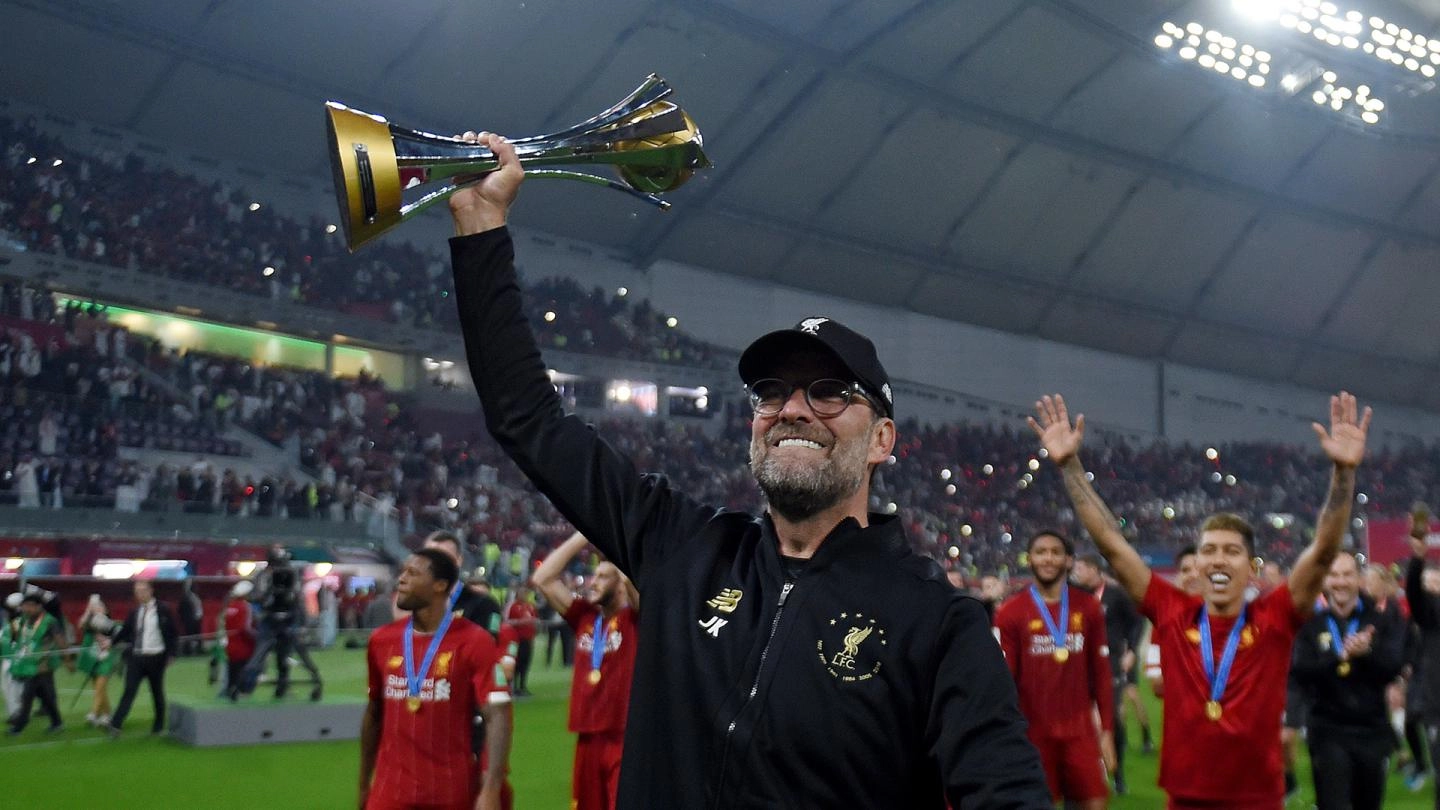In numbers35 fascinating stats about Jürgen Klopp's Liverpool reign
Enjoy 35 facts and figures about Jürgen Klopp’s unforgettable tenure as Liverpool manager, as compiled by club statistician Ged Rea…
Joe Gomez is the only member of the current Liverpool squad that was also part of it when Klopp arrived in October 2015.
Klopp gave senior debuts to 90 players during his time at Anfield – the first being Connor Randall in October 2015 and the last Mateusz Musialowski in March 2024.
Klopp is the only manager in Liverpool’s history to win six different major trophies (Premier League, Champions League, FA Cup, League Cup (twice), FIFA Club World Cup and UEFA Super Cup).
In March of this year, Klopp became only the third Reds boss to see his team score 1,000 goals during his tenure, after Bill Shankly and Tom Watson. Liverpool scored 1,035 times in 491 games under Klopp.
Klopp’s Liverpool took fewer games than under any other manager to reach 400, 500, 600, 700, 800, 900 and 1,000 goals in all competitions.
At 62.57 per cent, Klopp has the highest percentage win ratio in league games of any Liverpool manager who has been in charge for more than 30 matches.
You have to accept cookies in order to view this content on our site.
Watch on YouTubeSunday’s match against Wolverhampton Wanderers at Anfield was the 1,080th game of Klopp’s managerial career.
Klopp used 120 different players from a total of 33 nations, with Roberto Firmino (355) and Mohamed Salah (349) leading the way in appearances under him.
He chose 23 different captains throughout his reign. Jordan Henderson wore the armband on most occasions (247).
The seven youngest starting XIs in Liverpool’s history were all selected during Klopp’s tenure. The youngest average age was just 19 years and 102 days, against Shrewsbury Town at Anfield in February 2020.
Klopp is responsible for three of the club’s four highest-ever league points totals, including the record tally of 99 accrued in 2019-20.
Klopp’s Liverpool set a new club record of 44 top-flight league games without defeat between January 2019 and February 2020, winning 39 of those matches.
Liverpool’s two longest runs of successive league victories came under Klopp (18 from October 2019 to February 2020 and 17 from March to October 2019).
The 2019-20 league title success was achieved with more games to spare than any other title victory in English top-flight history (Liverpool won it with seven games still to play).
The Reds won 32 times during the 2019-20 Premier League season – the most victories they have ever accrued in a single league campaign.
When winning the title in 2019-20, Liverpool equalled the highest percentage of wins by any club in a top-flight season – 84.21 per cent.
In February 2020, Klopp’s side equalled the English top-flight record for most consecutive wins (18) and later in that season set a top-flight record of 24 successive home league victories.
Klopp led Liverpool to a club-record 68 consecutive league matches unbeaten at Anfield.
The Reds were unbeaten in the Premier League at home for three years and 272 days between April 2017 and January 2021.
Klopp oversaw Liverpool’s record number of away wins in a league campaign (14 in 2019-20).
Klopp was awarded back-to-back FIFA Men’s Coach of the Year awards in 2019 and 2020.
He was twice voted LMA Manager of the Year and Premier League Manager of the Season – in the same campaigns of 2019-20 and 2021-22.
He was voted Premier League Manager of the Month on 10 occasions.
Sixty-two different players scored for Liverpool during Klopp’s tenure, with Salah the most prolific on 211 goals.
Klopp used 57 different centre-back pairings during his time with the Reds. His most common partnership was Joel Matip and Virgil van Dijk (93 times).
Liverpool’s fastest Premier League goal was scored under Klopp. Naby Keita netted after just 15 seconds against Huddersfield Town in April 2019.
In 2019, Liverpool won 83.79 per cent of their league fixtures – the highest percentage rate in any calendar year in their history.
Klopp’s side set a new club record by scoring in 34 consecutive games in all competitions between April and December 2021.
In 2021-22, the Reds scored in 37 of their 38 Premier League matches – the fewest number of games in which they failed to find the net in any campaign with more than 34 fixtures.
Klopp took charge of Liverpool in more European games than any other manager (91) and he became the first Reds boss to reach the landmark of 50 wins in European fixtures during his final season, surpassing Rafael Benitez’s record of 49 victories.
The club’s two biggest away wins in Europe came under Klopp (7-0 at Maribor in 2017 and 7-1 at Rangers in 2022).
Three of the four most prolific seasons in Liverpool’s history came under Klopp. The Reds scored 135 goals in 2017-18, 142 in 2023-24 and a club-record total of 147 in 2021-22.
Liverpool’s biggest home and away wins in the Premier League came under Klopp (9-0 versus Bournemouth at Anfield in 2022 and 7-0 at Crystal Palace in 2020).
No team completed a league double of home and away wins over the Reds in the same season during Klopp’s time at the club.
In 2022, Klopp was awarded the Freedom of the City of Liverpool, becoming only the second foreign national to be given the honour after Nelson Mandela.
